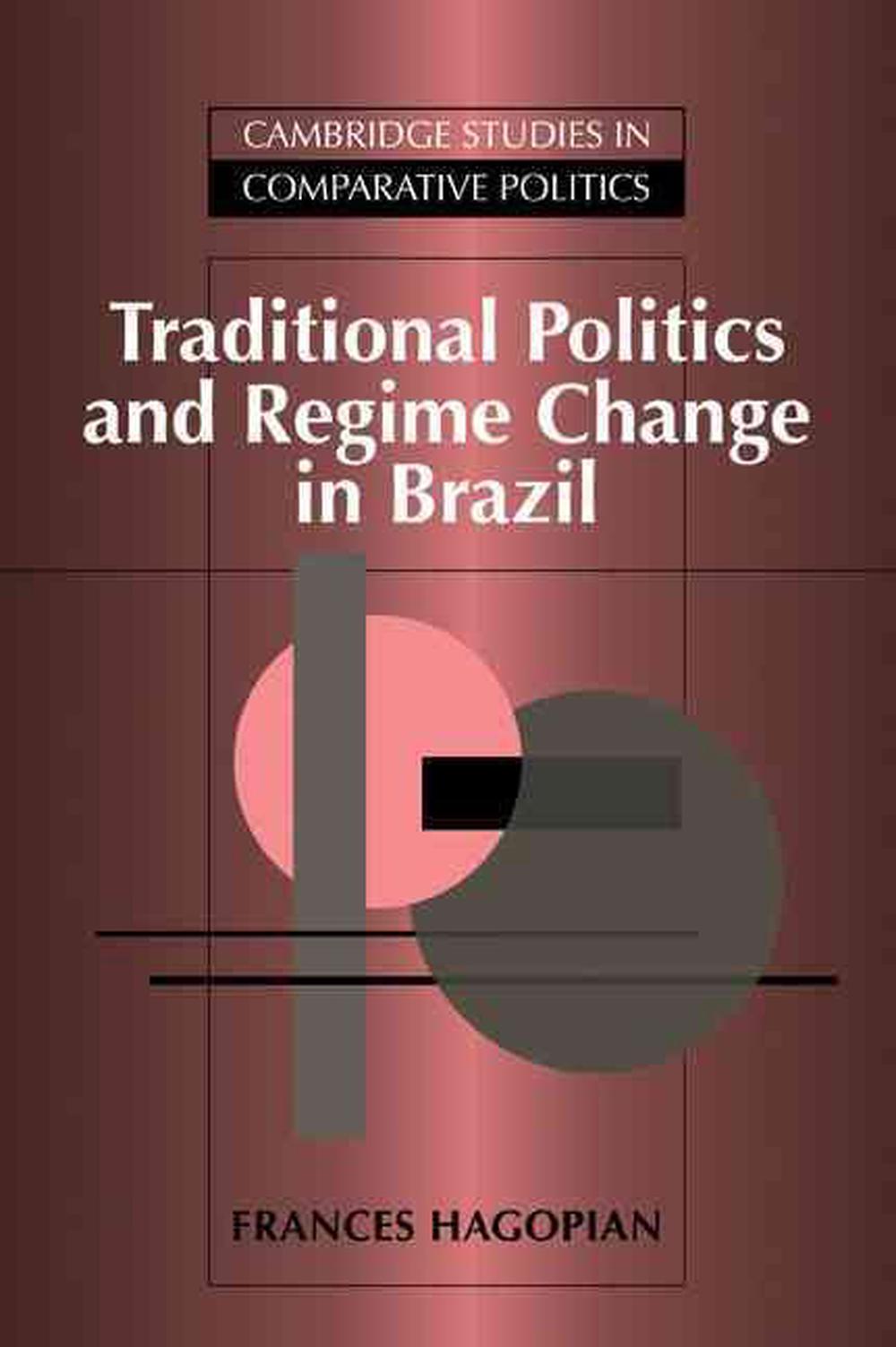
When you click on links to various merchants on this site and make a purchase, this can result in this site earning a commission. Affiliate programs and affiliations include, but are not limited to, the eBay Partner Network.
Traditional Politics and Regime Change in Brazil by Frances Hagopian (English) P

- Item No : 135860736250
- Condition : Brand New
- Brand : No brand Info
- Seller : the_nile
- Current Bid : US $42.42
-
* Item Description
-
The Nile on eBay

Traditional Politics and Regime Change in Brazil
by Frances Hagopian
This 1996 book is about the persistence of traditional politics in Brazil after 1964. It focuses on the dominance of regionally based, traditional political elites in the authoritarian regime of 1964 to 1985 and on the process of democratization.
FORMAT
PaperbackLANGUAGE
EnglishCONDITION
Brand New
Publisher Description
This 1996 book is about politics in Brazil during the military regime of 1964–85 and the transition to democracy. Unlike most books about contemporary Brazilian politics that focus on promising signs of change, this book seeks to explain remarkable political continuity in the Brazilian political system. It attributes the persistence of traditional politics and the dominance of regionally based, traditional political elites in particular to the manner in which the economic and political strategies of the military, together with the transition to democracy, reinforced the clientelistic, personalistic, and regional basis of state-society relations. The book focuses on the political competition and representation in the state of Minas Gerais.
Notes
This book is about politics in Brazil during the military regime of 1964–85 and the transition to democracy. It seeks to explain remarkable political continuity in the Brazilian political system. It attributes the persistence of traditional politics to the manner in which the economic and political strategies of the military operated. Added to this is the transition to democracy which reinforced the strong regional basis of state-society relations. The book focuses on the political competition and representation in the state of Minas Gerais.
Table of Contents
List of tables and figures; Preface; Glossary of abbreviations and Portuguese terms; 1. Introduction: traditional politics, new authoritarianism; 2. Oligarchical power and traditional politics in Minas Gerais; 3. The modern political economy of traditional politics; 4. Bureaucratic authoritarianism and the state elite; 5. Back to patronage: state clientelism in Minas Gerais; 6. Authoritarian politics and traditional elites; 7. The traditional political elite and the transition to democracy; 8. Continuity in change: Brazilian authoritarianism and democratization in comparative perspective; Appendix: the Minas elite; References; Index.
Review
Advance praise: 'Why has Brazil's return to civilian rule been marked by unrepresentative politics and poorly performing governments? Hagopian's path-breaking research demonstrates that the persistence of the power and influential style of politics of traditional elites is a key explanation. She sheds light on the modern political economy of traditional elites and the contemporary implications of rampant patronage politics. She explains as well how clientelism riddled the military dictatorship (1964-85) and thus limited its own impact on Brazil. Hagopian's book helps us understand the political dilemmas of both authoritarian and democratic politics in Brazil in novel ways.' Jorge I. Dominguez, Harvard University Advance praise: 'A pioneering study that will radically revise our understanding of how the military and civilian sectors interacted during Brazil's military government.' Thomas E. Skidmore, Brown University Advance praise: 'No book has taken on such broad questions so successfully about Brazil. I am confident that the book will make a big mark in our understanding of Brazil - and to some degree Latin America as a whole. I am equally confident that it will be one of the rare masterpieces that will stand the test of time. Few political science works are read for two decades; this book is likely to be one of them.' Scott Mainwaring, University of Notre Dame
Promotional
This 1996 book is about the persistence of traditional politics in Brazil after 1964.
Review Quote
'Why has Brazil's return to civilian rule been marked by unrepresentative politics and poorly performing governments? Hagopian's path-breaking research demonstrates that the persistence of the power and influential style of politics of traditional elites is a key explanation. She sheds light on the modern political economy of traditional elites and the contemporary implications of rampant patronage politics. She explains as well how clientelism riddled the military dictatorship (196485) and thus limited its own impact on Brazil. Hagopian's book helps us understand the political dilemmas of both authoritarian and democratic politics in Brazil in novel ways.' Jorge I. Domnguez, Harvard University
Promotional "Headline"
This 1996 book is about the persistence of traditional politics in Brazil after 1964.
Description for Bookstore
This 1996 book is about the persistence of traditional politics in Brazil after 1964. It focuses on the dominance of regionally based, traditional political elites in the authoritarian regime of 1964 to 1985 and on the process of democratization.
Description for Library
This 1996 book is about the persistence of traditional politics in Brazil after 1964. It focuses on the dominance of regionally based, traditional political elites in the authoritarian regime of 1964 to 1985 and on the process of democratization.
Details
ISBN0521032881Author Frances HagopianShort Title TRADITIONAL POLITICS & REGIMEPages 344Publisher Cambridge University PressLanguage EnglishISBN-10 0521032881ISBN-13 9780521032889Media BookFormat PaperbackYear 2007Imprint Cambridge University PressPlace of Publication CambridgeCountry of Publication United KingdomAffiliation Tufts University, MassachusettsIllustrations 46 Tables, unspecified; 4 Line drawings, unspecifiedDOI 10.1604/9780521032889UK Release Date 2007-01-18AU Release Date 2007-01-18NZ Release Date 2007-01-18Series Cambridge Studies in Comparative PoliticsPublication Date 2007-01-18Alternative 9780511584862DEWEY 320.98109045Audience Professional & Vocational


















